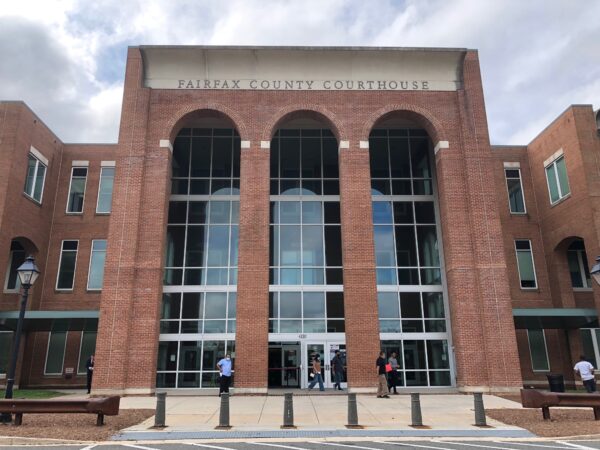
An expansion of the criminal charges eligible for record-sealing in Virginia has led to a surge in petitions for expungement to Fairfax County’s courts.
Faced with that increased caseload, the courts have moved to streamline the process by no longer requiring those petitioning for an expungement to attend a hearing, the Office of the Fairfax County Commonwealth’s Attorney announced last week.
As of March 1, a court hearing is only required if a petition is rejected.
“Previously, individuals would have to come to court for a one-minute hearing, which is a considerable burden if you’re unable to take off work, get childcare, or have other barriers to attending,” Commonwealth’s Attorney Steve Descano said. “Now, individuals can petition for an expungement by filing paperwork, which will be reviewed weekly.”
The process change was initiated by the Fairfax County Circuit Court judges, according to Court Clerk John Frey. It was implemented in a partnership between the judges, the clerk’s office and county prosecutors.
In Virginia, expungement removes criminal records from public view and prohibits access to them without a court order.
The Fairfax County Circuit Court received 701 expungement petitions between March 1, 2022 and March 1, 2023 — about three times more than the 211 petitions taken up the preceding year, according to data provided by Frey.
The court has taken in a total of 1,438 expungements over the past five years, including 168 petitions from March 1, 2018 to March 1, 2019, 200 in 2019-2020 and 158 in 2020-2021.
Frey attributes the increase over the past year directly to new laws adopted by the General Assembly in 2021 that introduced automatic sealing and significantly expanded the kinds of charges that can be sealed with a petition.
“The General Assembly made it much easier to obtain an expungement,” he said.
Currently, Virginia only expunges records if the petitioner is found not guilty, has the charges dropped or dismissed, or gets pardoned. In other words, a conviction will be public forever, regardless of how much time passes or the type of crime.
Under the 2021 law, which will take full effect in 2025, the state will automatically seal dismissed charges, acquittals, certain misdemeanor convictions, and cases where the person completes a “deferred disposition program,” such as Fairfax County’s specialized drug and mental health dockets.
Misdemeanors eligible for automatic sealing include simple marijuana possession, underage drinking, shoplifting, trespassing and disorderly conduct. The person must wait seven years since the conviction and have no new convictions during that time to have their record sealed.
The law also allows individuals convicted of other misdemeanors and Class 5 or 6 felonies to petition for expungement.
While automatic sealing won’t begin until 2025, the law has simplified the petitioning process by eliminating a fingerprint requirement, according to the Legal Aid Justice Center, which says expunging a criminal record typically takes at least nine months.
“A person’s criminal record can follow them around for a lifetime — even if they haven’t been convicted of the charges — potentially limiting their ability to get a job, benefits, or housing,” Descano said. “For people who want to start fresh, old criminal charges can prevent them from stabilizing their lives.”





